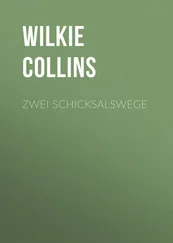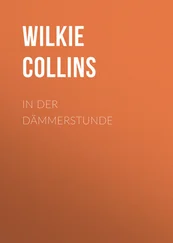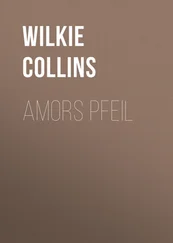Wilkie Collins - Little Novels
Здесь есть возможность читать онлайн «Wilkie Collins - Little Novels» весь текст электронной книги совершенно бесплатно (целиком полную версию без сокращений). В некоторых случаях можно слушать аудио, скачать через торрент в формате fb2 и присутствует краткое содержание. Год выпуска: 1999, Жанр: Классическая проза, на английском языке. Описание произведения, (предисловие) а так же отзывы посетителей доступны на портале библиотеки ЛибКат.
- Название:Little Novels
- Автор:
- Жанр:
- Год:1999
- ISBN:нет данных
- Рейтинг книги:5 / 5. Голосов: 1
-
Избранное:Добавить в избранное
- Отзывы:
-
Ваша оценка:
- 100
- 1
- 2
- 3
- 4
- 5
Little Novels: краткое содержание, описание и аннотация
Предлагаем к чтению аннотацию, описание, краткое содержание или предисловие (зависит от того, что написал сам автор книги «Little Novels»). Если вы не нашли необходимую информацию о книге — напишите в комментариях, мы постараемся отыскать её.
Little Novels — читать онлайн бесплатно полную книгу (весь текст) целиком
Ниже представлен текст книги, разбитый по страницам. Система сохранения места последней прочитанной страницы, позволяет с удобством читать онлайн бесплатно книгу «Little Novels», без необходимости каждый раз заново искать на чём Вы остановились. Поставьте закладку, и сможете в любой момент перейти на страницу, на которой закончили чтение.
Интервал:
Закладка:
“Her last words were faintly whispered to me in her husband’s presence: ‘Take care of him,’ the dying woman said, ‘when I am gone.’
“No effort of mine to be worthy of that sacred trust was left untried. How could I hope to succeed where she had failed? My house in London and my house in the country were both open to Beaucourt; I entreated him to live with me, or (if he preferred it) to be my guest for a short time only, or (if he wished to be alone) to choose the place of abode which he liked best for his solitary retreat. With sincere expressions of gratitude, his inflexible despair refused my proposals.
“In one of the ancient ‘Inns,’ built centuries since for the legal societies of London, he secluded himself from friends and acquaintances alike. One by one, they were driven from his dreary chambers by a reception which admitted them with patient resignation and held out little encouragement to return. After an interval of no great length, I was the last of his friends who intruded on his solitude.
“Poor Lady Howel’s will (excepting some special legacies) had left her fortune to me in trust, on certain conditions with which it is needless to trouble you. Beaucourt’s resolution not to touch a farthing of his dead wife’s money laid a heavy responsibility on my shoulders; the burden being ere long increased by forebodings which alarmed me on the subject of his health.
“He devoted himself to the reading of old books, treating (as I was told) of that branch of useless knowledge generally described as ‘occult science.’ These unwholesome studies so absorbed him, that he remained shut up in his badly ventilated chambers for weeks together, without once breathing the outer air even for a few minutes. Such defiance of the ordinary laws of nature as this could end but in one way; his health steadily declined and feverish symptoms showed themselves. The doctor said plainly, ‘There is no chance for him if he stays in this place.’
“Once more he refused to be removed to my London house. The development of the fever, he reminded me, might lead to consequences dangerous to me and to my household. He had heard of one of the great London hospitals, which reserved certain rooms for the occupation of persons capable of paying for the medical care bestowed on them. If he were to be removed at all, to that hospital he would go. Many advantages, and no objections of importance, were presented by this course of proceeding. We conveyed him to the hospital without a moment’s loss of time.
“When I think of the dreadful illness that followed, and when I recall the days of unrelieved suspense passed at the bedside, I have not courage enough to dwell on this part of my story. Besides, you know already that Beaucourt recovered—or, as I might more correctly describe it, that he was snatched back to life when the grasp of death was on him. Of this happier period of his illness I have something to say which may surprise and interest you.
“On one of the earlier days of his convalescence my visit to him was paid later than usual. A matter of importance, neglected while he was in danger, had obliged me to leave town for a few days, after there was nothing to be feared. Returning, I had missed the train which would have brought me to London in better time.
“My appearance evidently produced in Beaucourt a keen feeling of relief. He requested the day nurse, waiting in the room, to leave us by ourselves.
“‘I was afraid you might not have come to me to-day,’ he said. ‘My last moments would have been imbittered, my friend, by your absence.’
“‘Are you anticipating your death,’ I asked, ‘at the very time when the doctors answer for your life?’
“‘The doctors have not seen her,’ he said; ‘I saw her last night.’
“‘Of whom are you speaking?’
“‘Of my lost angel, who perished miserably in New Zealand. Twice her spirit has appeared to me. I shall see her for the third time, tonight; I shall follow her to the better world.’
“Had the delirium of the worst time of the fever taken possession of him again? In unutterable dread of a relapse, I took his hand. The skin was cool. I laid my fingers on his pulse. It was beating calmly.
“‘You think I am wandering in my mind,’ he broke out. ‘Stay here tonight—I command you, stay!—and see her as I have seen her.’
“I quieted him by promising to do what he had asked of me. He had still one more condition to insist on.
“‘I won’t be laughed at,’ he said. ‘Promise that you will not repeat to any living creature what I have just told you.’
“My promise satisfied him. He wearily closed his eyes. In a few minutes more his poor weak body was in peaceful repose.
“The day-nurse returned, and remained with us later than usual. Twilight melted into darkness. The room was obscurely lit by a shaded lamp, placed behind a screen that kept the sun out of the sick man’s eyes in the daytime.
“‘Are we alone?’ Beaucourt asked.
“‘Yes.’
“‘Watch the door.’
“‘Why?’
“‘You will see her on the threshold.’
“As he said those words the door slowly opened. In the dim light I could only discern at first the figure of a woman. She slowly advanced toward me. I saw the familiar face in shadow; the eyes were large and faintly luminous—the eyes of Mrs. Evelin.
“The wild words spoken to me by Beaucourt, the stillness and the obscurity in the room, had their effect, I suppose, on my imagination. You will think me a poor creature when I confess it. For the moment I did assuredly feel a thrill of superstitious terror.
“My delusion was dispelled by a change in her face. Its natural expression of surprise, when she saw me, set my mind free to feel the delight inspired by the discovery that she was a living woman. I should have spoken to her if she had not stopped me by a gesture.
“Beaucourt’s voice broke the silence. ‘Ministering Spirit!’ he said, ‘free me from the life of earth. Take me with you to the life eternal.’
“She made no attempt to enlighten him. ‘Wait,’ she answered calmly, ‘wait and rest.’
“Silently obeying her, he turned his head on the pillow; we saw his face no more.
“I have related the circumstances exactly as they happened: the ghost story which report has carried to your ears has no other foundation than this.
“Mrs. Evelin led the way to that further end of the room in which the screen stood. Placing ourselves behind it, we could converse in whispers without being heard. Her first words told me that she had been warned by one of the hospital doctors to respect my friend’s delusion for the present. His mind partook in some degree of the weakness of his body, and he was not strong enough yet to bear the shock of discovering the truth.
“She had been saved almost by a miracle.
“Released (in a state of insensibility) from the ruins of the house, she had been laid with her dead relatives awaiting burial. Happily for her, an English traveler visiting the island was among the first men who volunteered to render help. He had been in practice as a medical man, and he saved her from being buried alive. Nearly a month passed before she was strong enough to bear removal to Wellington (the capital city) and to be received into the hospital.
“I asked why she had not telegraphed or written to me.
“‘When I was strong enough to write,’ she said, ‘I was strong enough to bear the sea-voyage to England. The expenses so nearly exhausted my small savings that I had no money to spare for the telegraph.’
“On her arrival in London, only a few days since, she had called on me at the time when I had left home on the business which I have already mentioned. She had not heard of Lady Howel’s death, and had written ignorantly to prepare that good friend for seeing her. The messenger sent with the letter had found the house in the occupation of strangers, and had been referred to the agent employed in letting it. She went herself to this person, and so heard that Lord Howel Beaucourt had lost his wife, and was reported to be dying in one of the London hospitals.
Читать дальшеИнтервал:
Закладка:
Похожие книги на «Little Novels»
Представляем Вашему вниманию похожие книги на «Little Novels» списком для выбора. Мы отобрали схожую по названию и смыслу литературу в надежде предоставить читателям больше вариантов отыскать новые, интересные, ещё непрочитанные произведения.
Обсуждение, отзывы о книге «Little Novels» и просто собственные мнения читателей. Оставьте ваши комментарии, напишите, что Вы думаете о произведении, его смысле или главных героях. Укажите что конкретно понравилось, а что нет, и почему Вы так считаете.











